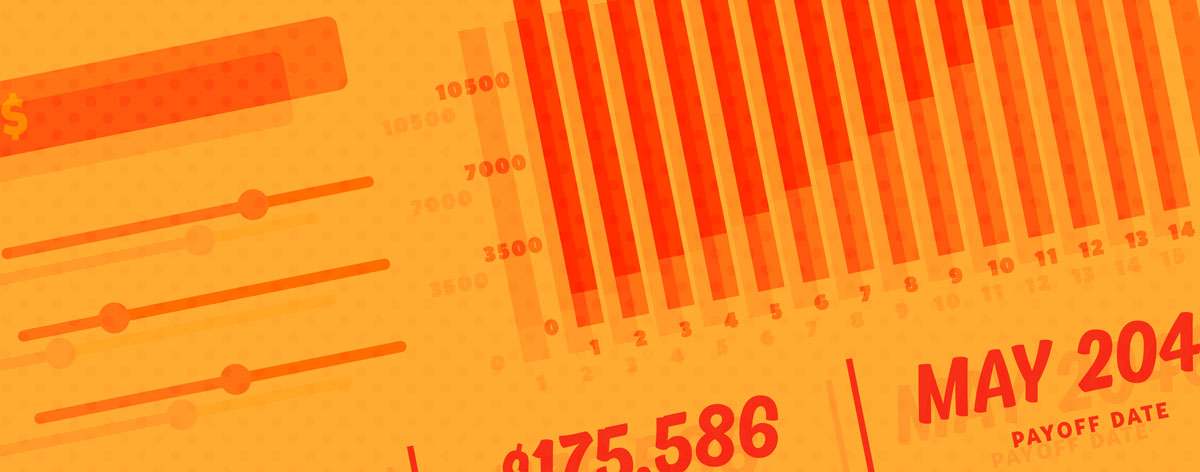
CD Calculator
What is a Certificate of Deposit?
A certificate of deposit (CD) is a savings account where you can't withdraw the money for a fixed amount of time. In exchange, you are offered a higher guaranteed interest rate than a normal savings account.
How This CD Calculator Works
You can enter the deposit size and interest rate of a certificate of deposit into this calculator to see how much a CD can grow over its lifetime (usually 12 to 60 months).
Why is a Certificate of Deposit (CD) useful?
A Certificate of Deposit (CD) is a secure way to grow your savings if you don’t need immediate access to your funds. CDs are particularly useful for individuals with money sitting in a savings account earning little to no interest.
Most CDs require a minimum deposit — usually between $500 and $2,500 — but the more you set aside, the more interest you’ll accrue over time. Even with a modest deposit, a CD often earns far more interest than a standard savings account, as long as you keep the money in place for the entire term.
How much will I earn on a CD?
Your CD earnings depend on two main factors:
- Deposit Amount (Principal): Larger deposits mean more total interest.
- Term Length: The longer your money is in the CD, the more it can grow.
That’s why using a CD calculator tool is so valuable. You can quickly compare how much you’ll earn under different scenarios — whether you want to calculate CD interest monthly or over several years.
For example, a $5,000 deposit in a one‑year CD at 4% will earn about $200, while a $10,000 deposit at the same rate doubles that to $400.
How to calculate CD interest on your own
If you’re looking to understand how to calculate CD interest, it comes down to knowing the type of interest your certificate of deposit (CD) earns: simple interest or compound interest.
Below is a step‑by‑step guide using both a simple interest and a compound interest formula, along with examples you can apply to your own savings.
Simple interest method:
The simple interest formula is Interest = Principal (Your deposit amount x Rate (the annual interest rate as a decimal) x Time (the length of the CD in years). As an example, if you deposit $5,000 into a one-year CD with a 4% annual rate, the formula would look like this: Interest = $5,000 x 0.04 x 1 = $200 meaning you’d earn $200 in interest by the end of the CD term!
Compound interest method:
The compound interest formula is A (the total value at maturity) = P (the principal deposit) x (1 + r (annual interest rate in decimal form)/n(number of compounding periods per year))^(n(number of compounding periods per year) x t(time in years)). That might seem like a lot, but let’s take it one step at a time with the same example we used above: Let’s say you deposit $5,000 into a 2‑year CD at 4% interest compounded monthly. This would look like this:
A = 5,000 × (1 + 0.04/12)^(12 × 2)
A ≈ $5,416.48 (Meaning You would have earned $414.48 in interest by the end of the cd term.)
How interest rates, term length, and deposit size impact CD returns
The interest rate on your CD directly influences the total amount you’ll earn. Higher rates lead to more growth, especially when compounded. For example, a 5% rate on a $10,000 deposit for one year earns significantly more than a 3% rate on the same deposit.
The length of time you agree to keep your money in a CD (the “term”) can significantly affect your earnings.
- Short-term CDs (like a 4 month CD or 11 month CD) may offer lower rates.
- Long-term CDs (such as 3–5 years) generally have higher rates but lock in your money longer.
- Specialized options like a 13-month CD can sometimes offer promotional rates.
The amount you deposit also impacts how much you’ll earn. A larger principal means higher total interest, even if the rate is the same. For example, using a $5,000 CD, a 4% annual rate earns $200 in a year — but doubling the deposit to $10,000 doubles the earnings.
What are some things to look out for when considering a CD?
Certificates of Deposit (CDs) can be a great way to earn interest, but they come with some important conditions to keep in mind. Most CDs include an early withdrawal penalty, so if you take out your money before the maturity date, you’ll likely face a fee. This penalty can significantly reduce—or even wipe out—the interest you've earned. In some cases, it might even cut into your original deposit.
You may also come across CDs with high promotional rates that seem like a great deal. While these offers can be appealing, it's essential to read the fine print. Some promotional CDs automatically renew at a lower rate or come with stricter penalties, so be sure you understand the terms before committing.
Finally, remember that a CD isn’t like a savings account. Your money is locked in for the full term, and unless you're willing to pay a penalty, you won’t be able to access it early. If you don’t already have a separate emergency fund, tying up your cash in a CD could leave you in a tough spot if unexpected expenses arise.
Neither Banzai nor its sponsoring partners make any warranties or representations as to the accuracy, applicability, completeness, or suitability for any particular purpose of the information contained herein. Banzai and its sponsoring partners expressly disclaim any liability arising from the use or misuse of these materials and, by visiting this site, you agree to release Banzai and its sponsoring partners from any such liability. Do not rely upon the information provided in this content when making decisions regarding financial or legal matters without first consulting with a qualified, licensed professional.

